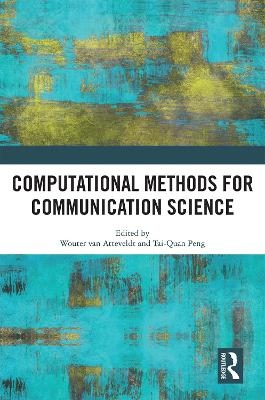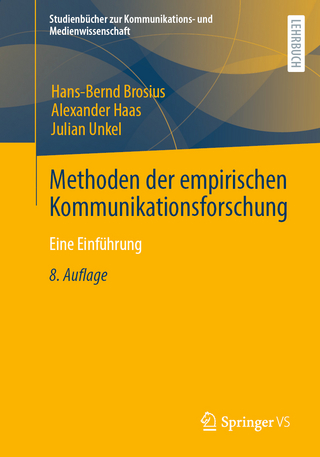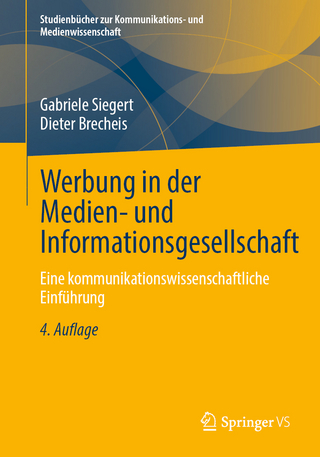
Computational Methods for Communication Science
Routledge (Verlag)
978-0-367-53617-6 (ISBN)
This book discusses the validity of using big data in communication science and showcases a number of new methods and applications in the fields of text and network analysis. Computational methods have the potential to greatly enhance the scientific study of communication because they allow us to move towards collaborative large-N studies of actual behavior in its social context. This requires us to develop new skills and infrastructure and meet the challenges of open, valid, reliable, and ethical "big data" research. This volume brings together a number of leading scholars in this emerging field, contributing to the increasing development and adaptation of computational methods in communication science.
The chapters in this book were originally published as a special issue of the journal Communication Methods and Measures.
Wouter van Atteveldt is Associate Professor of Political Communication at VU Amsterdam, the Netherlands. His research interests include computational communication science and the role of news and journalism in the functioning of democracy. He co-founded the ICA division on Computational Methods and is Editor-in-Chief of the journal Computational Communication Research. Tai-Quan Peng is Associate Professor at the Department of Communication, Michigan State University, East Lansing, USA. His research interest lies in the application of computational methods to examine structure and dynamics of human communication phenomena on social and mobile media. He was the Inaugural Chair of the Computational Methods division at the International Communication Association.
Introduction: When Communication Meets Computation: Opportunities, Challenges, and Pitfalls in Computational Communication Science
Wouter van Atteveldt and Tai-Quan Peng
1. Applying LDA Topic Modeling in Communication Research: Toward a Valid and Reliable Methodology
Daniel Maier, A. Waldherr, P. Miltner, G. Wiedemann, A. Niekler, A. Keinert, B. Pfetsch, G. Heyer, U. Reber, T. Häussler, H. Schmid-Petri and S. Adam
2. Extracting Latent Moral Information from Text Narratives: Relevance, Challenges, and Solutions
René Weber, J. Michael Mangus, Richard Huskey, Frederic R. Hopp, Ori Amir, Reid Swanson, Andrew Gordon, Peter Khooshabeh, Lindsay Hahn and Ron Tamborini
3. More than Bags of Words: Sentiment Analysis with Word Embeddings
Elena Rudkowsky, Martin Haselmayer, Matthias Wastian, Marcelo Jenny, Štefan Emrich and Michael Sedlmair
4. Scaling up Content Analysis
Damian Trilling and Jeroen G. F. Jonkman
5. How Team Interlock Ecosystems Shape the Assembly of Scientific Teams: A Hypergraph Approach
Alina Lungeanu, Dorothy R. Carter, Leslie A. DeChurch and Noshir S. Contractor
6. Methods and Approaches to Using Web Archives in Computational Communication Research
Matthew S. Weber
7. Disentangling User Samples: A Supervised Machine Learning Approach to Proxy-population Mismatch in Twitter Research
K. Hazel Kwon, J. Hunter Priniski and Monica Chadha
| Erscheinungsdatum | 28.09.2023 |
|---|---|
| Verlagsort | London |
| Sprache | englisch |
| Maße | 178 x 254 mm |
| Gewicht | 540 g |
| Themenwelt | Sozialwissenschaften ► Kommunikation / Medien ► Kommunikationswissenschaft |
| ISBN-10 | 0-367-53617-X / 036753617X |
| ISBN-13 | 978-0-367-53617-6 / 9780367536176 |
| Zustand | Neuware |
| Informationen gemäß Produktsicherheitsverordnung (GPSR) | |
| Haben Sie eine Frage zum Produkt? |
aus dem Bereich


